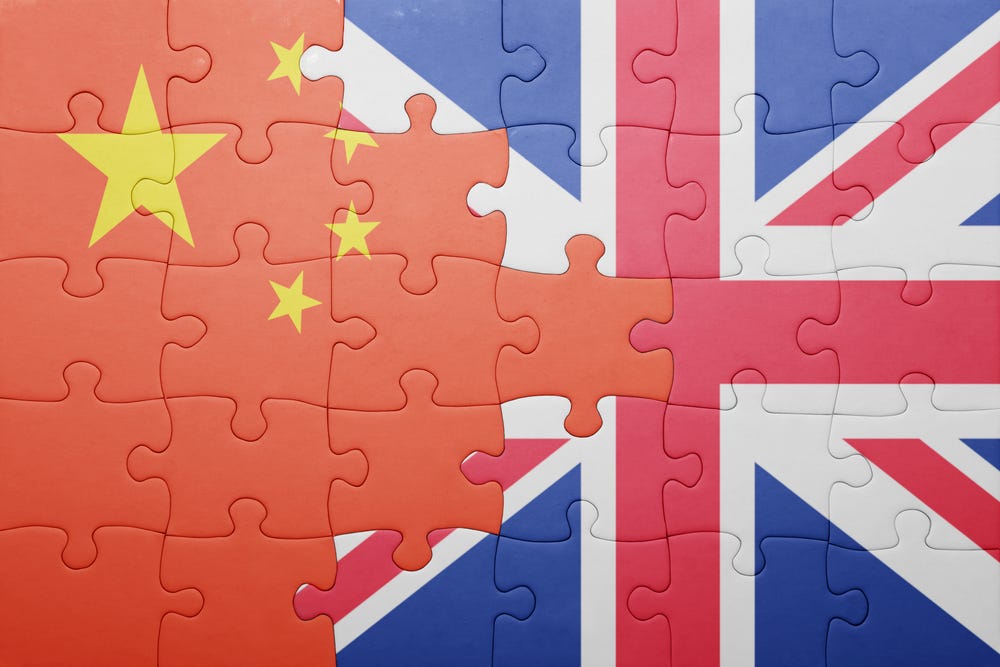Chinese Institutes Across UK Threaten Academic Freedom
“By replicating China’s legal regime which restricts speech, Confucius Institutes have in fact successfully imported a regime of censorship onto British campuses."
In August 2020, then Secretary of State Mike Pompeo issued a statement, designating Confucius Institutes as a foreign mission of the People’s Republic of China [PRC], warning that the institutes “are funded by the PRC and part of the Chinese Communist Party’s global influence and propaganda apparatus.”
That statement no longer exists on the State Department’s website, but it appears, based on what is happening on college campuses in the United Kingdom, that Pompeo was correct. According to The Telegraph:
MPs have warned the institutes are effectively a front for the Chinese Communist Party to clamp down on critical views of China and that they are having a “chilling effect” on academic freedom.
Research seen by The Telegraph has uncovered evidence that Chinese bodies supervising Confucius Institutes appear to be using discriminatory employment policies to vet staff working on UK campuses and are attempting to replicate China’s legal regime, which restricts free speech.
Job applications posted by Chinese universities, which have partnerships to run Confucius Institutes with their British counterparts, including Cardiff, Southampton and Huddersfield, ask applicants to describe their “political profile/characteristics” and “ethnicity”.
What are Confucius Institutes? According to the Washington Post, they are “Chinese-language and cultural centers funded by grants from China — more than 1,000 have been established around the world, usually on university campuses. These institutes also work with local K-12 schools to open Confucius Classrooms, which offer programs for younger students.”
In a 2018 column, The Post’s Josh Rogin warned that Confucius Institutes threaten “the ability of the next generation of American leaders to learn, think and speak about realities in China and the true nature of the Communist Party regime.”
Beyond fears of student indoctrination, The Telegraph reports on how these institutes are also threatening academic freedom on UK campuses:
Job applications posted by Chinese universities, which have partnerships to run Confucius Institutes with their British counterparts, including Cardiff, Southampton and Huddersfield, ask applicants to describe their “political profile/characteristics” and “ethnicity”.
Sam Dunning, who is leading the research for the Henry Jackson Society, a foreign policy think tank, and the Committee for Freedom in Hong Kong, a pro-democracy organisation, said the application forms are seemingly being used to find out whether candidates are a Communist Party member or have any potentially problematic affiliations.
[ . . . ]
Anson Kwong, a researcher from Hong Kong now based in London, said: “By replicating China’s legal regime which restricts speech, Confucius Institutes have in fact successfully imported a regime of censorship onto British campuses.
“And our universities are indeed participating in the Communist Party’s systematic oppression of ethnic minorities and political dissidents. All this undermines our scholarship by corrupting our knowledge of China, so that we only get the official version of Chinese culture, society and history.”
In the U.S., about 104 of the 118 Institutes in the country closed starting around 2020. But according to Voice of America, they are beginning to return to schools following a rebrand:
But beginning in July 2020, as U.S. schools were closing the programs even before the State Department’s finding, the Chinese government reorganized and rebranded the Confucius Institutes’ parent department, the Office of Chinese Language Council International, also known as Hanban, as the Ministry of Education Center for Language Exchange and Cooperation (CLEC). The CLEC also spun off a separate organization, the Chinese International Education Foundation (CIEF), to fund and oversee Confucius Institutes and many of their replacements, according to Xinghuanet, a state-controlled news outlet.
As of June 2022, around 28 of those that closed have replaced their Confucius Institute with a similar program while 58 have “maintained close relationships with their former Confucius Institute partner,” according to a report by the National Association of Scholars.
The full report from NAS is worth a thorough read on the lengths the Confucius Institutes have gone to rebrand and camouflage themselves within universities under similar terms and arrangements. We’ll see whether these new centers will be more cautious about threats to academic freedom in the U.S.



